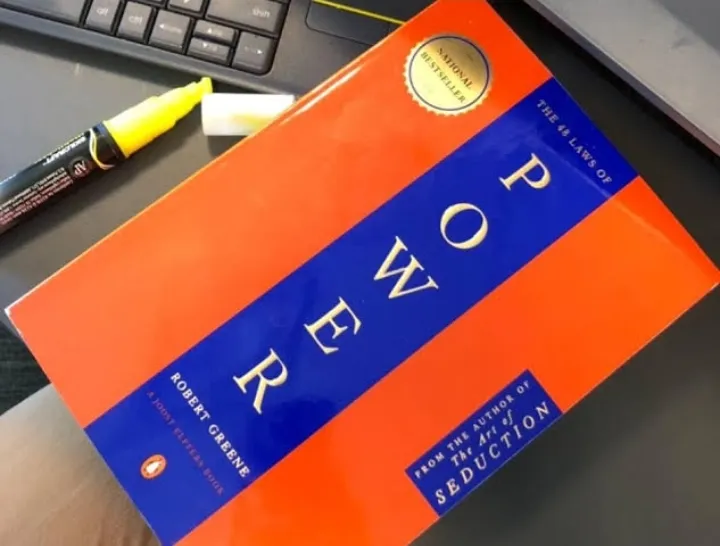
The 48 laws of power is a book written by Robert Greene, a renowned American author. The book, which was first published in 1998, is classified under the self-help genre. Other books by Robert Greene include The Art of Seduction and The Laws of Human Nature.
I have recently started reading this book and I would just like to share what I gain from the book with this community, occasionally infusing my own perspectives.
In this post, I will starting off with the preface of the book. As I read the summaries of the 48 laws, I began to get some hints as to why some had previously described the book as evil and demonic to me, among other language. Quite honestly, I was taken aback by some of the laws as well, but we'll get into the laws in more detail in future posts.
The first paragraph of the preface, in my opinion, perfectly summarizes the preface. Robert starts out by saying that the feeling of having
no power over people and events is generally
unbearable to us. After some thought, I think we can all agree that is very true. Jordan Peterson, a professor of psychology, has stated multiple times that the feeling of powerlessness over events and people is a key cause of anxiety and depression in people.
Since nobody wants to remain in a state of helplessness, this leads to a quest for power. However, quite frequently, this quest cannot be carried out so overtly without placing ourselves at risk of peril. The quest for power is best carried out covertly. As Robert Greene puts it, we have to be congenial yet cunning, democratic yet devious.
Anyone that has watched good epic movies such as Game of Thrones or The Witcher must've observed the power tussle that went on in the courts and palaces. Tactics such as seduction, charm, deception, and subtle strategy were utilized by various characters to enable achieve their goals.
Robert warns sternly against those who see a conscious attempt at a power game as evil and diabolical and publicly renounce such a 'crude' deed. People like this will often display their weakness and
lack of power as a kind of moral virtue, when in fact, such an act is one of the laws of power itself. Also, true powerlessness, without any motive of self-interest, would not (be able to) publicize its weakness to gain sympathy or respect. "Once again, those
who make a show or
display of innocence are the least innocent of all."
In my opinion, nature abhors a vacuum and it will always find a way to fill any power gaps that it detects. We don't really get to have a say in whether we participate in the game of power or not. If that then is the case, the best move forward on the chessboard is to study the game, learn the game, and become a master at it. This enables you recognize other people's ploys at power, subvert them, and attain your own goals in a seamless fashion. However, control is really important and one must be able to restrain oneself from employing these laws to become villainous.
This book promises to be quite an entertaining and educative read. I look forward to all it holds. This will be all for now.